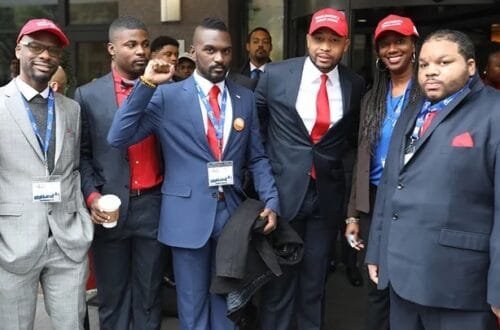Understanding Choices That Shape Our Society: What Happened?

The Disheartening Decisions of Seniors
The choices and voting behavior of senior citizens often presents a perplexing paradox, particularly when they support policies that undermine the very social safety nets they depend on. An analysis reveals a surprising trend: many elderly voters have backed measures that pose risks to essential programs such as social security. This choice raises an array of questions regarding their motivations and the broader implications for society.
One contributing factor may be the influence of partisan politics. Seniors, despite their reliance on social programs, may prioritize ideological alignment over personal benefit. For some, the allure of preserving tax cuts or supporting a political party’s agenda can outweigh the risks to their own financial security. Additionally, many senior voters have been swayed by the narratives presented by political figures who frame these choices in a more positive light, suggesting that such policies will lead to economic growth and benefit society as a whole.
Furthermore, there is a segment of the senior population that harbors skepticism towards government programs, viewing them as inefficient or prone to misuse. Such perceptions can lead to an inclination to support policies that promise reform or reduced government spending, despite the potential negative ramifications for their own futures. Additionally, the generational shift in values, notably among baby boomers compared to their predecessors, might also play a role in shaping these decisions.
The implications of these choices are multifaceted, affecting not only the seniors themselves but also younger generations who will be tasked with shouldering the burden of any shortfalls in social safety nets. As seniors elect representatives who favor policies detrimental to long-term social programs, the situation may evolve into a cycle of diminishing support, threatening the viability of crucial resources for future retirees.
Ultimately, the disheartening decisions of senior citizens reveal a complex interplay of personal belief systems, political influences, and societal implications that will require careful examination as we move forward in shaping the future of our social safety net systems.
The Gender Disparity in Voting: Women’s Rights at Stake
The intersection of gender and voting presents a complex landscape, particularly when examining how women, often influenced by social and cultural norms, have historically cast their ballots in ways that inadvertently undermine their own rights. Despite centuries of advocacy for women’s rights, many find themselves supporting policies that contradict their interests, especially regarding reproductive health. Understanding this phenomenon requires an exploration of the manifold forces that impact female voters’ choices.
Social conditioning plays a crucial role in shaping voting behavior. Women may feel societal pressure to align with certain political ideals, often prioritizing party loyalty or communal expectations over self-advocacy. This can lead to a troubling scenario where they support legislation that may strip them of essential rights or access to reproductive health services. The portrayal of women in media and the political realm often reinforces stereotypes, subtly suggesting that their primary concerns lie outside the realm of direct policy implications affecting their autonomy. This dynamic not only complicates personal voting decisions but also contributes to a broader societal narrative that diminishes women’s voter agency.
Further complicating the issue is the long-term impact of these voting patterns. Decisions made during elections can have lasting repercussions on legislation that directly affects women’s health and rights. For instance, policies limiting access to reproductive health services can stem from voting decisions made by women who perhaps did not fully grasp the consequences of their choices. Over time, this can create systemic barriers to healthcare and diminish the progress made toward equity. Recognizing the implications of voting behaviors is vital for fostering informed participation among women, empowering them to champion their rights within the political landscape.
In summary, the gender disparity in voting illustrates a critical need for awareness and education regarding the implications of one’s vote. Women must navigate cultural pressures and understand the potential impact of their choices on their rights and health to make informed decisions that promote self-empowerment and societal progress.
Immigrants and the Dilemma of Deportation Raids
The evolution of immigration policy in recent years has led to increased deportation raids, particularly in communities with significant immigrant populations. These choices, often driven by a desire for national security or economic reform, have profound implications for the lives of individuals and families. Many immigrant voters previously supported candidates and policies believing they would strengthen the economy or promote safety. However, the consequences of these policies have created an environment fraught with fear and uncertainty within immigrant communities.
One key motivator behind the support for deportation policies is the perception of their necessity in maintaining law and order. Some constituents, in an effort to prioritize safety, endorse measures that may undermine the well-being of immigrant families. These decisions stem from a complex interplay of historical context, emotional narratives, and socio-political pressures, often overshadowing the personal stories of those directly affected. This dilemma indicates a significant division within society, as the need for security clashes with the fundamental rights of vulnerable populations.
The consequences of prioritizing deportation raids extend beyond individual fears; they ripple throughout entire communities. Families become fragmented, with members living in constant worry of being separated. Such raids alienate undocumented immigrants from local law enforcement, discouraging them from reporting crimes or seeking assistance. This results in communities that are neither safe nor united, as fear drives a wedge between immigrant families and the broader society. Rather than fostering solidarity, these policies contribute to an atmosphere of mistrust and division, whereby native-born citizens and immigrants are pitted against one another.
The societal implications of this scenario compel us to examine how our collective choices shape the very fabric of our communities. Understanding the motivations behind immigrant voters’ decisions and the resultant policies necessitates a broader reflection on the long-term impacts of our current immigration practices. Only then can we hope to pivot towards a path that builds unity and progress, rather than exacerbating fear and division.
Understanding the Poor’s Support for Tax Cuts for the Wealthy
The phenomenon of lower-income individuals supporting tax cuts aimed primarily at the wealthy presents a complex paradox within contemporary society. At the core of this issue lies a blend of psychological and socio-economic factors that influence voting behaviors among those who may not directly benefit from such policies. One significant factor is the belief in the idea of upward mobility, where individuals hold onto the hope that they will achieve greater wealth in the future. This optimism often leads to the perception that support for tax cuts for the rich could eventually benefit them as well.
Another crucial aspect to consider is the misconceptions surrounding wealth distribution. Many lower-income individuals may harbor the belief that the wealthy are job creators and that reducing their tax burden will incentivize investment, leading to job growth and economic expansion. This viewpoint is bolstered by political rhetoric that frames tax cuts for the affluent as a catalyst for broader economic improvement, ultimately benefiting all socio-economic classes. However, the reality often proves otherwise, as empirical studies indicate that tax cuts for the wealthy contribute to rising income inequality, rather than alleviating poverty.
Additionally, societal narratives about personal responsibility and meritocracy play a role in shaping attitudes toward taxation. Some individuals may feel that wealth equates to deservedness, prompting them to align with policies that favor the affluent. This belief, driven by cultural norms that valorize success, leaves many unaware of the systemic barriers that perpetuate poverty, thus fostering misguided support for tax cuts that inadequately address disparity in wealth distribution.
Ultimately, these voting patterns mirror a profound disconnect between intentions and outcomes. The belief that tax cuts for the wealthy will trickle down and uplift the lower classes is a persistent illusion that fails to account for the structural factors of poverty and income inequality. Analyzing this paradox reveals a need for a more comprehensive public discourse on the implications of tax policy and its far-reaching effects on the socio-economic landscape.



